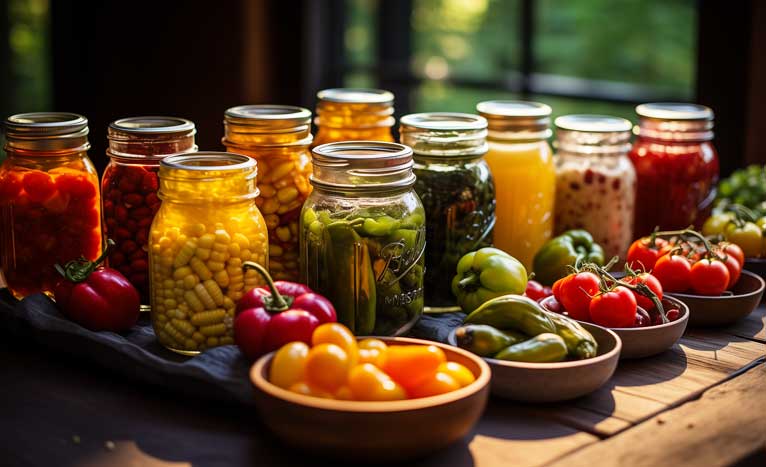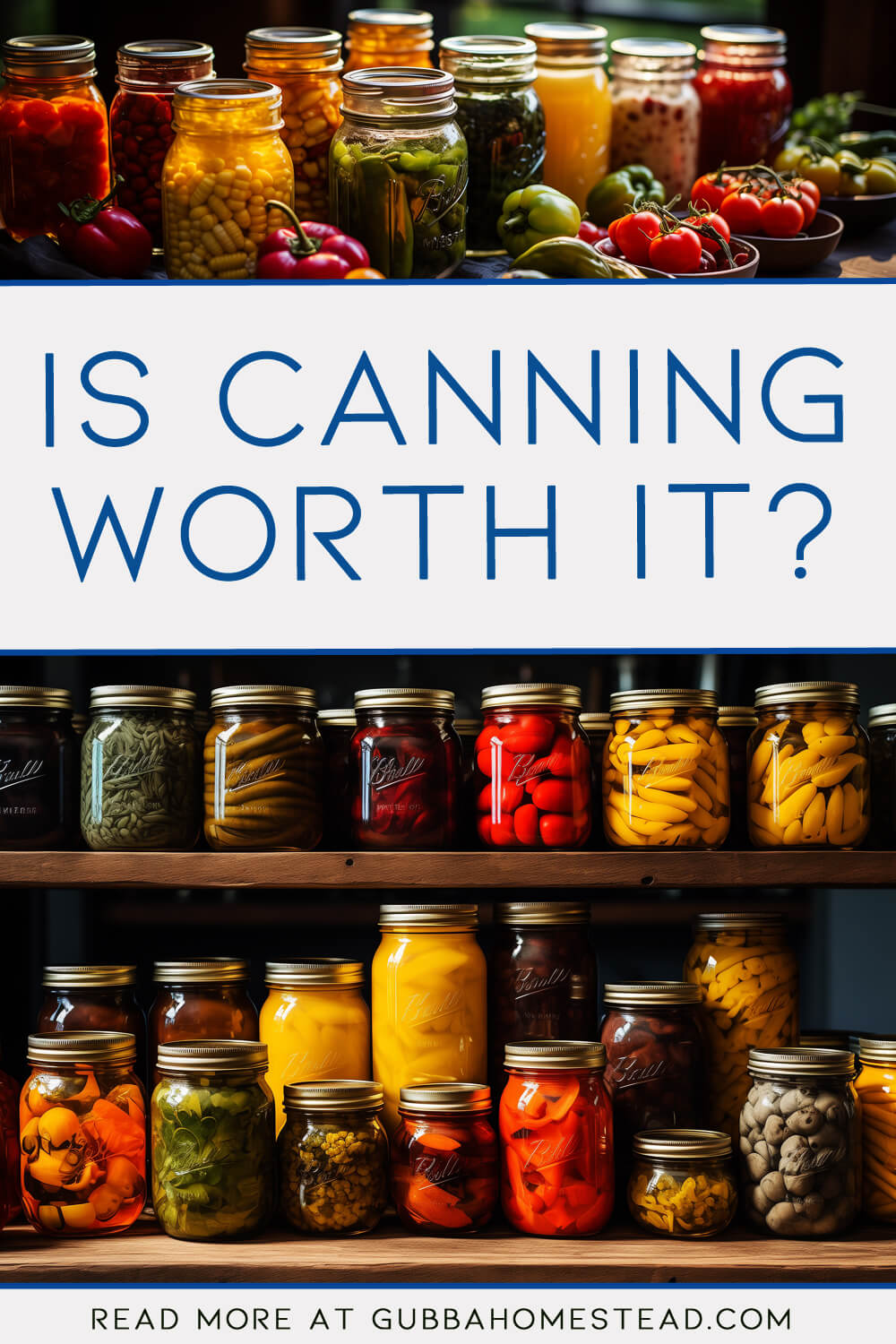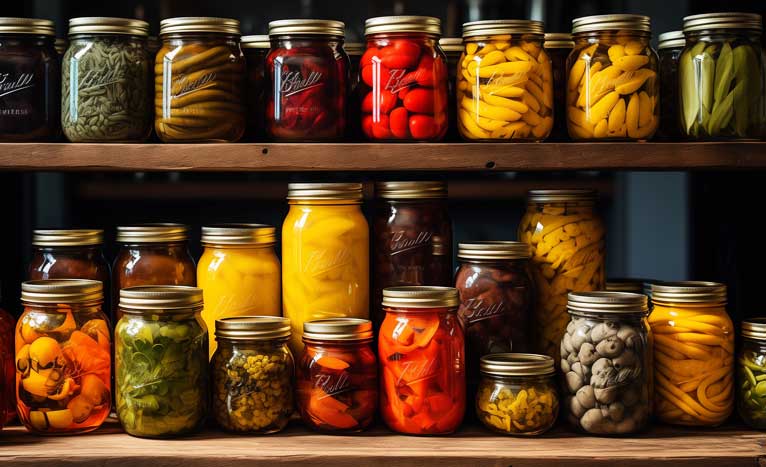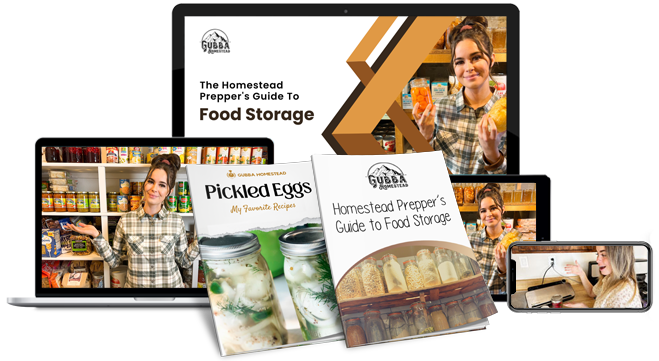Canning is a time-honored method of preserving food. It allows you to enjoy the flavors of summer fruits and vegetables long after the harvest season has passed. But is canning worth the time and effort it demands? In this blog, we will explore the pros and cons of canning and help you decide whether it's a worthwhile endeavor for you.
Our great-grandparents and the generations before us knew the importance of food preservation, but that knowledge had been lost on us. So is canning, one of the time-proven methods of food preservation, really worth it?
Benefits of Canning
1. Food Preservation
Canning is an excellent way to ensure you have access to your favorite foods year-round. It prevents spoilage and extends the shelf life of your produce. Whether it's homemade jams or garden-fresh tomatoes, canning allows you to savor the taste of summer even in the dead of winter.
2. Cost Savings
Buying fruits and vegetables in season and canning them can lead to significant cost savings over time. You can take advantage of sales and bulk purchases when produce is at its cheapest. Plus, you'll reduce waste by preserving what you can't consume immediately. When foods are in season, they are cheap. When they are out of season, they are expensive. Keep an eye on your grocery stores of when the foods you want to preserve are cheapest and make a plan to preserver them!
3. Control Over Ingredients
When you can your own food, you have complete control over the ingredients. You can opt for organic, locally sourced produce and regulate the amount of sugar, salt, or other additives you use. This level of control is a significant advantage for those who are health-conscious or have dietary restrictions.
Canned food from the store could have been made who-knows where and with who-knows what kind of ingredients. Being able to control what goes into your food is a top priority!
4. Food Quality
Canned foods, when done correctly, retain their flavor, texture, and nutritional value. They can taste just as good as fresh and are often superior to store-bought canned goods, which may contain preservatives and additives. Ensure you always follow approved recipes when canning.

Drawbacks of Canning
1. Time and Effort
Canning can be a labor-intensive process. It involves sterilizing jars, preparing ingredients, and processing them. Beginners might find it time-consuming, and it can be challenging to fit into a busy schedule.
One time I stayed up all night processing canned butter because I didn’t realize how much time it would take to shake the jars as they cooled. Some canning recipes can seem simple until you actually get going and the time starts to slip by.
2. Learning Curve
Canning has a learning curve. It's crucial to follow tested and safe canning recipes to prevent foodborne illnesses. The process can seem daunting for newcomers, and mistakes can lead to spoiled food.
The best way to practice canning is to do trials of canned water in your canners. This will help you get practice under your belt without the risk of ruining food.
3. Initial Cost
There's an initial investment in canning equipment and supplies, including jars, lids, and canners. While these can be used repeatedly, the upfront cost can be a deterrent for some. Canning equipment is an investment into food preservation and your food storage.
4. Storage Space
Canned goods require storage space. You'll need to allocate enough room to store your jars safely, which can be challenging for those with limited space. If you live in an earthquake prone zone, you will need secure shelving, so the jars don’t fall during an earthquake.
Considerations for Canning
To make canning worth it, it's essential to follow safe canning practices. Ensure you have the necessary equipment and storage space to preserve your food properly. Educate yourself on the best practices to avoid any food safety issues.
Personal Experiences and Preferences
Ultimately, whether canning is worth it depends on your personal experiences and preferences. Some individuals find the process fulfilling and enjoy the taste of homemade canned goods. Others may prefer the convenience of buying canned items from the store. Again, this will be personal preference.
In my experience, I have found canning to be worth it in terms of quality and taste! Canning plays a pivotal role in creating a robust emergency food storage system, offering a practical solution for preserving and maintaining the nutritional value of various foods over an extended period. The process of canning involves sealing food in airtight containers, effectively preventing spoilage and maintaining freshness.
This preservation method ensures a stable and reliable food source during emergencies, where access to fresh produce may be limited. By canning essentials like fruits, vegetables, and proteins, individuals can build a well-rounded emergency food supply that not only sustains them but also provides essential nutrients.
If you're keen on mastering the art of emergency food storage through canning, I invite you to check out my comprehensive video course. Gain invaluable insights and practical tips to enhance your preparedness for unforeseen situations.
Should I start canning?
Canning offers numerous benefits, including food preservation, cost savings, ingredient control, and food quality. However, it comes with drawbacks such as time and effort, a learning curve, initial costs, and the need for storage space. Whether canning is worth it depends on your individual circumstances and preferences. If you enjoy the process and the satisfaction of preserving your food, canning can be a rewarding endeavor.
I would suggest you learn the skill of canning because it can be passed down to the next generation. Don’t be the generation that loses the knowledge of how to preserve food!
FAQs
1. How long do canned goods last?
Canned goods can last for several years if properly stored in a cool, dark place.
2. Is canning safe for beginners?
Canning can be safe for beginners if they follow established canning guidelines and recipes.
3. Can I reuse canning jars and lids?
Jars can be reused if they are in good condition, but lids should not be reused for canning to ensure a proper seal.
4. What foods are best for canning?
Fruits, vegetables, jams, and pickles are popular choices for canning.
5. Are there alternatives to canning for food preservation?
Yes, freezing and dehydrating are alternative methods for preserving food. Each method has its pros and cons, depending on the type of food and personal preferences.


